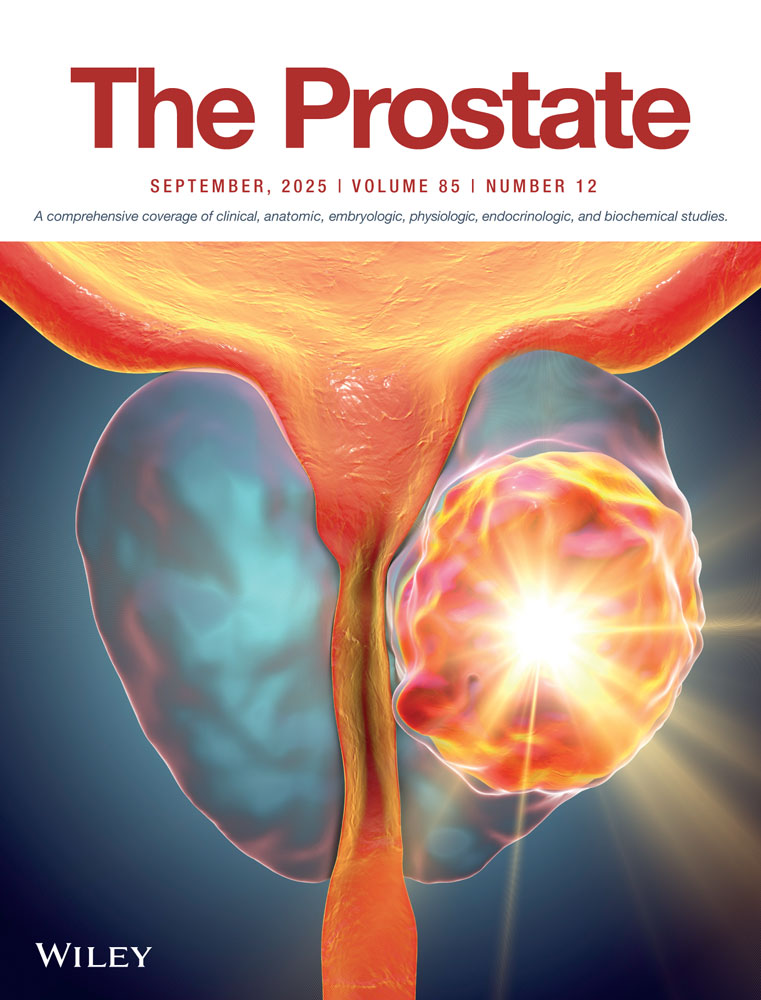Expression of p21 cell cycle protein is an independent predictor of response to salvage radiotherapy after radical prostatectomy
Abstract
BACKGROUND
To assess whether the expression of p21, p27, and p53 could predict biochemical failure in prostate cancer patients treated with neoadjuvant androgen deprivation prior to salvage radiotherapy for a rising post-radical prostatectomy (RP) prostate-specific antigen (PSA).
METHODS
The expression of p21, p27, and p53 was determined by immunohistochemistry in a cohort of 74 formalin-fixed paraffin-embedded prostate cancer samples obtained from RP. Expression of these markers was then correlated with clinicopathological parameters and biochemical failure-free survival after salvage radiotherapy.
RESULTS
Expression of p21, p27, and p53 was observed in 20%, 69%, and 74% of prostate cancer specimens, respectively. Overexpression of p21 correlated with a higher Gleason score (>7) (P = 0.024). Of the three markers, only p21 expression was correlated with PSA failure after radiotherapy (P = 0.034). In multivariate analysis, both positive p21 (P = 0.004) and pre-radiation serum PSA > 1 ng/ml (P < 0.0001) were independent predictors of biochemical failure after salvage radiotherapy. Patients with p21− tumors and a serum PSA level ≤ 1 ng/ml before salvage radiotherapy had a biochemical failure-free survival at 5 years of 83%, compared to 16% at 5 years for those patients with either p21+ tumor or a PSA > 1 ng/ml. Patients with both p21+ and a PSA level > 1 ng/ml had a much lower biochemical failure-free survival rate of 25% at only 18 months (P < 0.0001).
CONCLUSIONS
The expression of p21 in prostatectomy specimens could help predict the likelihood of response to salvage radiotherapy, particularly in patients treated before PSA reaches 1 ng/ml. © 2003 Wiley-Liss, Inc.




